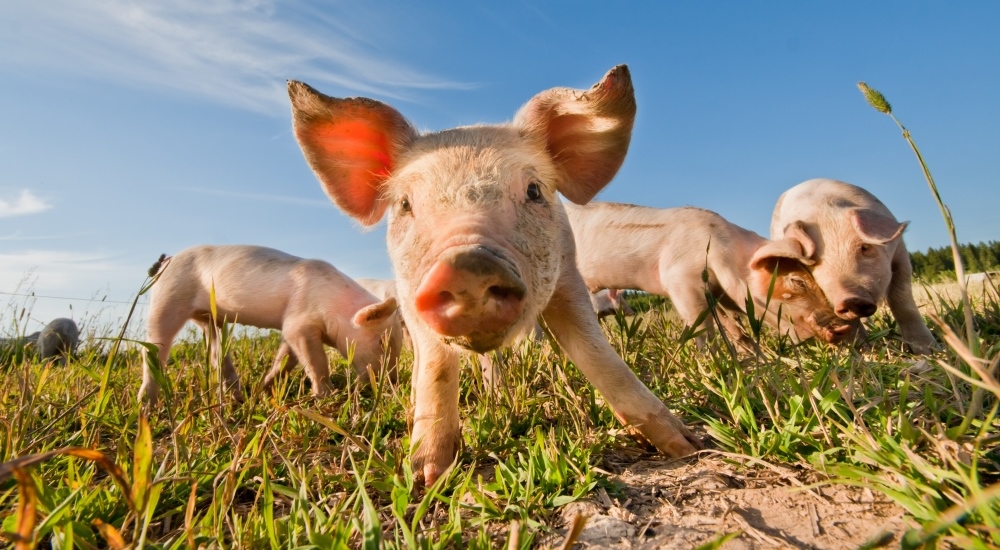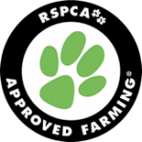Animal Welfare
Author: Wholesome Hub Date Posted:1 January 2018
[@access_control@] [@article_id@] [@blog_author@] [@blog_content@] [@blog_id@] [@blog_subheader@] [@blog_subject@] [@category_id@] [@category_name@] [@category_ref@] [@category_subheader@] [@ccat_id@] [@compat_id@] [@compat_list_id@] [@compatcat_description@] [@compatcat_description2@] [@compatcat_fullname@] [@compatcat_name@] [@compatcat_ref@] [@content@] [@content_allow_reviews@] [@content_author@] [@content_compatibility_code@] [@content_description1@] [@content_description2@] [@content_description3@] [@content_external_ref1@] [@content_external_ref2@] [@content_external_ref3@] [@content_external_src@] [@content_fullpath@] [@content_id@] [@content_label1@] [@content_label2@] [@content_label3@] [@content_level@] [@content_module@] [@content_name@] [@content_ref@] [@content_short_description1@] [@content_short_description2@] [@content_short_description3@] [@content_type_code@] [@content_type_id@] [@content_type_name@] [@content_wufoo_form@] [@date_posted@] [@date_updated@] [@description@] [@description2@] [@external_ref@] [@gp_restriction@] [@id@] [@name@] [@page_content@] [@page_editor@] [@page_header@] [@page_id@] [@page_index@] [@page_subheader@] [@parent_ccat_id@] [@parent_content_id@] [@parent_id@] [@rating@] [@reviews@] [@short_description@] [@sortorder@] [@subtitle@] [@templatebody@] [@templatefoot@] [@templatehead@] [@templatesearch@] [@thumb@](CODE) [@thumb_alt@](CODE) [@thumb_alt1@](CODE) [@thumb_content_type_id@] [@timestamp@] [@title@] [@url@]
These days, not many of us have the stomach to slaughter our own meat so in some ways we have to distance ourselves from the ways our meat is produced. Still, we have a responsibility to make sure that we live compassionately and the animals we eat are being treated kindly. If you would like to learn more about animal welfare and how it affects the food we eat, read on. We’ll focus on what we can do in our everyday lives to make sure animals are taken care of when they are used to produce our food.
.jpg)
What is animal welfare
Animal welfare is simply making sure that all animals are treated with dignity and respect. This means that there’s no difference between working animals, farmed animals and pets. All animals deserve to have food, clean water, shelter, humane medical treatment, room to move around, and to be free from fear and distress.
What are the main concerns
Factory farming
Chickens are mainly kept indoors in darkened hatcheries where they are discouraged from moving around and encouraged to eat so that they become fattened up very quickly. Although they are technically free to roam around, meat chickens are usually uncaged, unlike most egg-laying chickens. Some chicken companies use this confusion to claim that their chickens are ‘free range’ to imply that they’ve been raised humanely.
From the time they’re hatched, until the time they’re slaughtered, chickens live for 35 days. That’s an enormous rate of growth. Because of this, farmed chickens are susceptible to a range of health problems. They’ve been specially bred to grow huge breasts, and often their legs simply snap or go lame, unable to cope with the weight they’re carrying. Some of them have heart and eye problems; others have blisters on their breasts.
Factory farming is not limited to chickens.
Pigs are also kept in tiny metal stalls with barely enough room to take a step forwards or backwards. Piglets routinely have their tails cut off, their teeth removed, and males are castrated. This is all done without anaesthetic. Animals Australia point out that if this was done to your dog, you’d be arrested.
Dairy cows
For anyone who drinks milk or enjoys eating cheese, yoghurt, butter and ice cream, it comes as a shock to learn that dairy cows are generally not kept in a humane way. Dairy cows have to have one calf a year so that their milk production keeps up. Calves born to dairy cows are taken away and usually killed, seen as nothing more than a by-product. You can imagine the distress the cow must go through when she is separated from her calves year after year. Although unfarmed cows live up to 25 years, a dairy cow is worn out after four or five years. She is weighed down by her huge udders, usually has mastitis, and is sometimes unable to stand after spending up to seven months of the year on concrete floors being milked.
Bobby calves
The calves of dairy cows are called bobby calves and really are treated terribly. They’re seen as nothing more than a by-product of the dairy industry and have very little humane treatment in their short lives. Immediately after they are born, they are taken from their mothers and fed once a day. If you think of how often babies need milk, you’ll see that being fed milk once a day is cruel. At five days old, the bobby calves are put onto trucks and taken to slaughter. Because they are seen as by-products, they are not given proper shelter, nor protected on the long drive to the abattoir. Once at the abattoir, sick, starving and confused, they are chased off the trucks and finally put out of their misery.
Halal and Kosher meat(Also referred to as ‘un-stunned slaughter’)
Animal welfare groups have expressed concern with the way animals are killed using the Halal and Kosher methods. For an animal to be ritually killed, the animal has its throat slit so the blood flows out. A 1978 study in Germany found that animals feel little pain when they are killed this way, and the Muslim Council of Britain states that animals feel no pain because the blood rapidly spills out of the animal’s brain and pain receptors. Animal welfare groups disagree and point out the length of time it takes for an animal to die using these methods. The RSPCA recommend that Halal and Kosher products are be labelled so that consumers have the choice to buy or not buy these products.
Live animal exports
On 30 May 2011, ABC1’s ‘Four Corners’ aired a program about the live export of cattle to Indonesia. Brutally explicit about the suffering that these animals were exposed to, it opened up a wave of protest from everyday Australians. Prime Minister Julia Gillard temporarily suspended live exports to Indonesia. Over 200,000 people signed an online petition. Independent MP Andrew Wilke and Greens MP Adam Bandt pushed for a ban on live exports, and, at the very least, changes to make the live exports humane. The main point was that animals should be stunned unconscious before being killed. On 21 October, an independent report was released that ruled out a ban on live exports but did recommend more human ways of transporting animals. Yet, to the incredulity of those who had watched the ‘Four Corners’ program, it did not recommend stunning.
Cruelty in abattoirs
In November 2011, an abattoir in Gippsland, Victoria was closed down permanently when video showed just how terribly pigs were killed. In the 90 minute video, pigs had their eyes and ears stabbed with stunning equipment while another who failed to die after this treatment was bludgeoned to death with a sledgehammer. There is now a call to install CCTV in all Australian abattoirs to prevent animal abuse. Ministers in the UK are currently considering making CCTV compulsory in all abattoirs in Great Britain.

What can we do
The WSPA recommend that we eat better, safer and kinder. You can eat humanely if you choose the right products.
Compassionate living
These days we eat so much more meat products than we used to because of the lower prices and because it’s so much more accessible. This means we are consuming more meat that exacerbates the way meat is farmed, raised and slaughtered. So moderating the amount of meat products we eat is a start. There’s even a movement called Meat-free Monday, where you don’t eat any meat every Monday to lessen the environmental impact of eating meat. Another thing to be aware of is buying more than we need. It would help to keep in mind what has gone into getting that product onto our plates so we don’t waste and disregard so easily.
Choose Organic and Free Range Products
Eating organic is a solution because animal welfare and respect for animals is part of their charter. Not only are free range and organic foods better for the animals but you will also get to enjoy the added health benefits and environmental benefits. When you shop, look out for meat and eggs that are organic or free-range. Consider a cow’s milk alternative, like organic soy, rice or oat milks if an organic option isn’t available to you.
Go Vegetarian or Vegan
There is definitely a certain group of people in our community who would make this choice based on their concern for animal welfare, and that is extremely admirable. By choosing not to eat meat or animal products, such as milk, cheese, honey, butter, eggs, you are living compassionately and healthily, both for yourself and for animals. But for those of us that don’t think a vegan or vegetarian lifestyle is suitable for themselves or their family there are definite ways you can continue to enjoy meat, dairy and egg products whilst ensuring that the animals have been well cared for and respected.
Look out for the RSPCA Approved Farming logo
The RSPCA have a paw-print logo that they put on products to endorse farms that have proven they look after their animals humanely.

If you go to their website and type in your location, it’ll find what approved products are available and in which shops. Go to: www.rspca.org.au/shophumane/
For more information:
- World Society for the Protection of Animals (WSPA) aim to protect animals from cruelty in farming, food production and after disasters. Go to: www.wspa.org.au
- The RSPCA website can be found at: www.rspca.org.au
- Animals Australia exposes cruelty to animals. They were the ones behind the ‘Four Corners’ segment on live exports to Indonesia. Go to: www.animalsaustralia.org
- Mid-June, after the ‘Four Corners’ episode on live exports was aired, the RSPCA and Animals Australia put together a website called Ban Live Export. There you can sign the petition: www.banliveexport.com
- Professor Roger Brambell investigated the welfare of UK farmed animals in 1965 and his findings were adapted into ‘The Five Freedoms’ of animal welfare. Go to:https://www.gov.uk/government/groups/farm-animal-welfare-committee-fawc
- For more on the process of dairy farming and its effects on animal welfare go to:
http://alq.org.au/dairy







